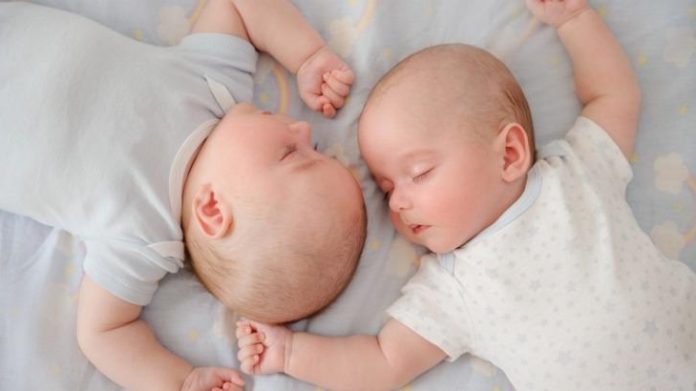A set of twins in Queensland have made history after being the first semi-identical twins to be identified while still in the womb.
The unnamed twins are only the second ever pair to be identified as semi-identical, a concept their parents were likely confused by.
“We traditionally classify twins as being identical or non-identical, and while that classification works, sometimes things don’t always appear as they seem,” Queensland University of Technology clinical geneticist Doctor Michael Gabbett told SBS News.
“If there is the suspicion that something isn’t fitting into the categorisation that we normally use, then we have to think outside the box.”
Franternal twins – those that aren’t identical – share half of their DNA, whereas identical twins share all of their DNA. This is because fraternal twins are born from two separate embryos fertilised by two different sperm, while identical twins come from a single egg and sperm.
But what happens when two sperm make it to the same egg? Semi-identical twins.
They share 100 per cent of the DNA from their mother, but only 50 per cent of the DNA from their father, leaving the pair half way between identical and non-identical.
It was a shock to Professor Nicholas Fisk when he first discovered the twins had this rare split of DNA while still in their mother’s womb in 2014.








